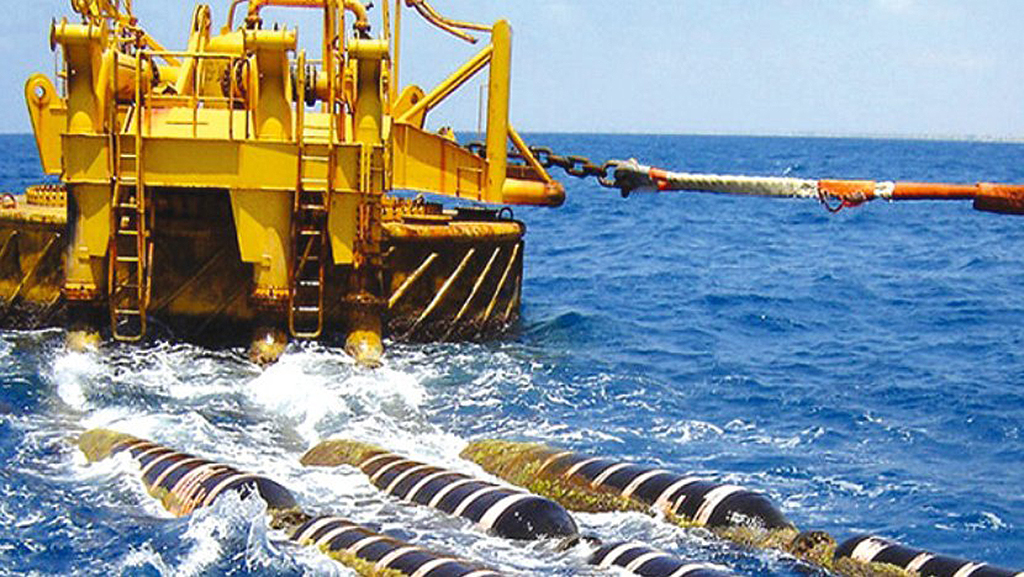The Crete–Cyprus electricity interconnection is moving steadily forward, but only until August, according to reports that emerged on Tuesday.
Nexans, the French cable contractor, has confirmed it will continue construction until then, yet what happens after that remains entirely unclear.
For now, the burden is on Greece’s Independent Power Transmission Operator (Admie) to keep the project alive, according to Greek outlet Newmoney.
The Greek transmission operator is under pressure to recover expenses through both Greek and Cypriot regulatory authorities in order to ensure liquidity.
So far, there has been little enthusiasm from Nicosia, which appears unwilling to approve payments without clearer guarantees that the project will actually be completed.
According to sources close to Greece’s regulatory authority for energy, waste and water, in order for the €7.5 million of permitted revenue for the cable to be approved, Admie needed to submit operating expense data and figures from related projects, which it finally did at the end of last week.
The aim now is for the plenary to decide by Thursday, paving the way for cost recovery to begin via Greek electricity bills from July.
But from the Cypriot side, there is no such urgency. Government officials maintain that it’s not reasonable to finance a project when you don’t know if, or when, it will be built. The hesitation lies in the unknowns.
Despite Cyprus being a key partner in the interconnection, its reluctance to move forward with the payments reflects broader geopolitical concerns and doubts over Admie’s financial strategy.
The Cypriot government is particularly concerned about the loan taken on by Admie. As officials put it, it’s one thing to apply for funding, and quite another to be certain you’ll have the regulatory backing to repay it.
In a recent interview with Bloomberg, Admie president and CEO Manos Manousakis was blunt. Securing finance is proving difficult, as banks now demand documentation showing that a recovery in income is happening.
He added that without active payments from the regulators, financing is practically impossible, and the project risks being frozen.
So far, Admie has already invested around €250 million, though the breakdown of the funding sources remains vague.
It is unclear whether these funds came from equity, European grants, or other resources.
What is clear is that if the project fails, the operator would be forced to return all the EU money, which currently stands at €658 million.
Amid these tensions, the Greek government took a step in Luxembourg, during the EU Energy Ministers’ meeting.
After coordinated moves, an explicit reference was added to the council conclusions stressing the need to protect Projects of Common Interest (PCI), including subsea interconnections, from external interference and obstacles.
This is particularly relevant given Turkey’s objections, which have already delayed the Crete–Cyprus cable by more than a year.
Even so, the Cypriot government remains hesitant. President Nikos Christodoulides is in Athens today, speaking at a conference on East Med energy transition organised by the Financial Times and Kathimerini. His presence comes at a time of mounting pressure for Nicosia to clarify its stance.
While the EU calls for stronger cross-border infrastructure to support energy security, Cyprus is still debating whether it wants to be part of this particular one.
Cera, the Cypriot energy regulatory authority, has agreed to contribute €125 million, but the funds will only start flowing from 2026, and only if the interconnection enters operation.
The payments will be spread across several years.
In contrast, the regulatory authority for energy, waste and water is already prepared to approve the recovery of all justified project costs during construction, with Greek consumers footing the bill immediately through their electricity bills.
At this stage, the only solid reassurance for the project’s immediate future has come from Nexans.
The French company has publicly stated that work will continue until August, which implies that payments from Admie are secured at least until then.
Operator officials say that around 200km of cable have already been produced, but if the money stops, so will the work.
For now, everything hinges on the decisions expected this week. Without regulatory backing from both sides, the future of the interconnection remains as uncertain as ever.






Click here to change your cookie preferences